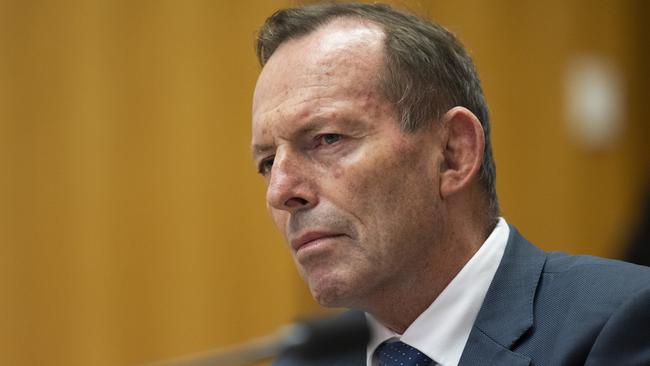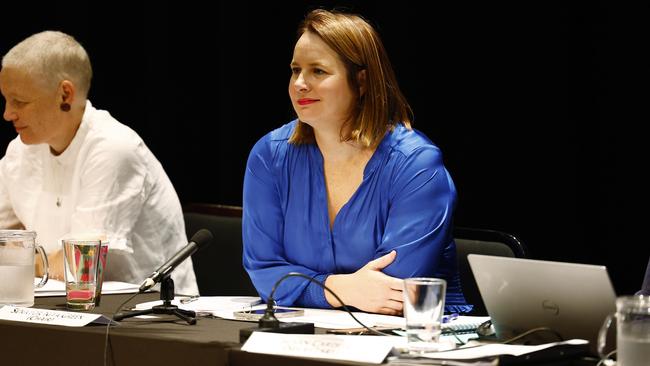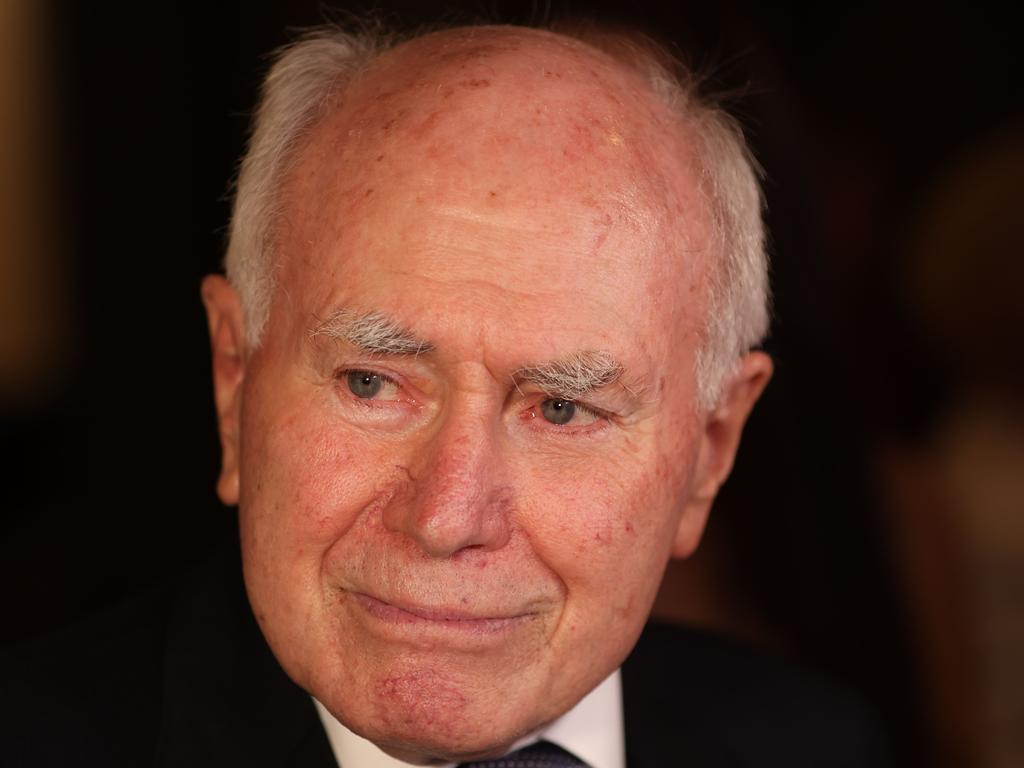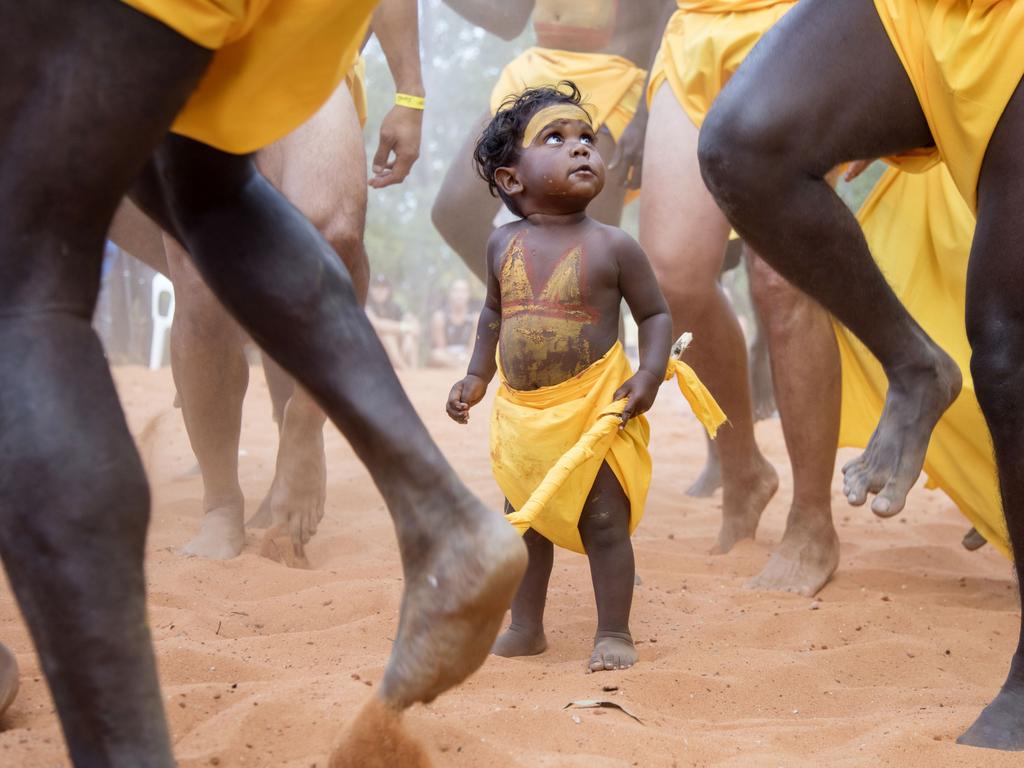Tony Abbott says Labor-dominated panel on Indigenous voice to parliament is not listening
Tony Abbott says the Labor-dominated committee which waved through the PM’s plan ignored ‘legal expert after legal expert’ on its constitutional dangers.

Australians will be asked to vote for an Indigenous voice to parliament and “executive government” after a Labor-dominated parliamentary committee endorsed Anthony Albanese’s proposed constitutional amendment without change, deepening the political battle over the referendum process.
The Liberals and Nationals – who made up less than a third of committee members – issued dissenting reports on Friday attacking as insufficient the six-week time frame given to the inquiry.
Liberal members said the nation had been “denied the benefit of a constitutional convention” to “iron out issues with the drafting and narrow the areas of dispute”, arguing that Australians would be forced to vote on a constitutional change without being properly informed.
“The parliament should never again be asked to consider a constitutional change that is put forward without detail, without process and without a proper understanding of the risks,” the Liberals’ dissenting report says.
“More importantly, the Australian people should not be asked to vote on a serious constitutional change in those circumstances.”
Putting aside its concerns, the Coalition said it would “not stand in the way” of a national vote, with the release of the committee report paving the way for the passage of legislation allowing an Indigenous voice to be enshrined within a new chapter of the Constitution. The referendum is expected to be held between October and December.
Abbott: Voice committee has ‘no ears’
Former Liberal prime minister Tony Abbott, who was originally blocked from giving evidence to the inquiry, said the recommendation of the committee demonstrated that it “wasn’t listening”.
“Legal expert after legal expert has testified that there was massive constitutional risk associated with the current proposal. How ironic that the voice committee would turn out to have no ears,” he said.
“Should the referendum be passed, it’s all but certain that the High Court would find that the voice had an implied right to be heard and the government had an implied obligation to listen attentively.
“That, indeed, is exactly what proponents demand. There is nothing in the majority report to shake my conviction that this proposal must be defeated.”

Committee chair defends recommendation
Committee chair and Labor MP Nita Green invoked the late Yunupingu in the report’s foreword, declaring that the Indigenous leader had called for “an honest answer from the Australian people to an honest question”.
“This is an honest question; it is now time for the Australian people to be given the opportunity to provide an honest answer,” she said.
“The committee is satisfied that the Constitution alteration is not only fit for purpose, but also will enhance Australia’s systems of governance and laws.”
The committee made a single recommendation: that the proposed change to the Constitution “be passed unamended”, although the Liberals’ dissenting report said that the amendment should not pass in its current form.
While the committee noted concerns over the voice’s capacity to make representations to executive government, the majority report said there was “a consensus of constitutional experts” supporting the proposed wording.
The committee pointed to advice from Anne Twomey, George Williams, former High Court chief justice Robert French, former High Court judge Kenneth Hayne and Solicitor-General Stephen Donaghue, who provided assurances parliament would have oversight of the voice.
Constitutional lawyer Greg Craven said he was not surprised by the report but stressed the inquiry had failed to “put to bed” concerns put to the committee by witnesses including himself.
“We all have concerns and we’ve expressed those concerns. What you’ve got here is government members supporting a government draft bill,” he said.
However, Professor Craven said he would still campaign and vote in favour of the voice, despite the wording not being “perfect”.
Indigenous leader Noel Pearson – a member of the government’s referendum working group – said the committee’s majority recommendation was “the right outcome” but took aim at the dissenting report.
“The dissenting report reads like a No vote looking for a reason to vote No, rather than a serious consideration of the proposition,” he said.
“Whilst this is disappointing, the fact is that the question of recognition will soon be put to the Australian people for their decision. I look forward to that day.”
Tom Calma, one of the architects of the voice and another member of the referendum working group, said the inquiry had allowed everyone to “have a say”.
“We’re approaching this from a position of good will. We just want to see improvements to the system. We’re not here to litigate against everything if we don’t get our own way,” he said.
Attorney-General Mark Dreyfus and Indigenous Australians Minister Linda Burney said the government looked forward to the Constitution amendment bill now progressing.
“The committee’s recommendation was based on evidence of significant support for the voice from Aboriginal and Torres Strait Islander organisations and communities,” they said. “It also reflects the overwhelming consensus of constitutional and legal experts, who told the committee that the amendment is constitutionally sound.”
The Liberals’ dissenting report, penned by voice supporter Andrew Bragg, Keith Wolahan and Kerrynne Liddle, said that the committee was “hamstrung by the government’s refusal to provide any detail that would illustrate how the constitutional change might operate”.
“The government has taken the extraordinary approach of saying that the institution would be designed after the referendum,” the report says.
“The uncertainty and risk associated with the proposal as currently drafted are unquantifiable, and, if adopted at a referendum, would, in effect, be permanent.”
In his own additional comments to the report, Senator Bragg said the committee’s inquiry had “failed to engage with the primary risks and to examine and assess the options required to address these risks”.
“The majority report is a missed opportunity,” Senator Bragg said. “The primary question for this committee is whether the parliament will be able to effectively manage (the) legal effects of the voice’s operation. There are mixed views on the degree of risk, but it cannot be ruled out under the current wording.”
Senator Bragg urged Labor to reconsider passing the Constitution Alteration bill in its current form.







To join the conversation, please log in. Don't have an account? Register
Join the conversation, you are commenting as Logout